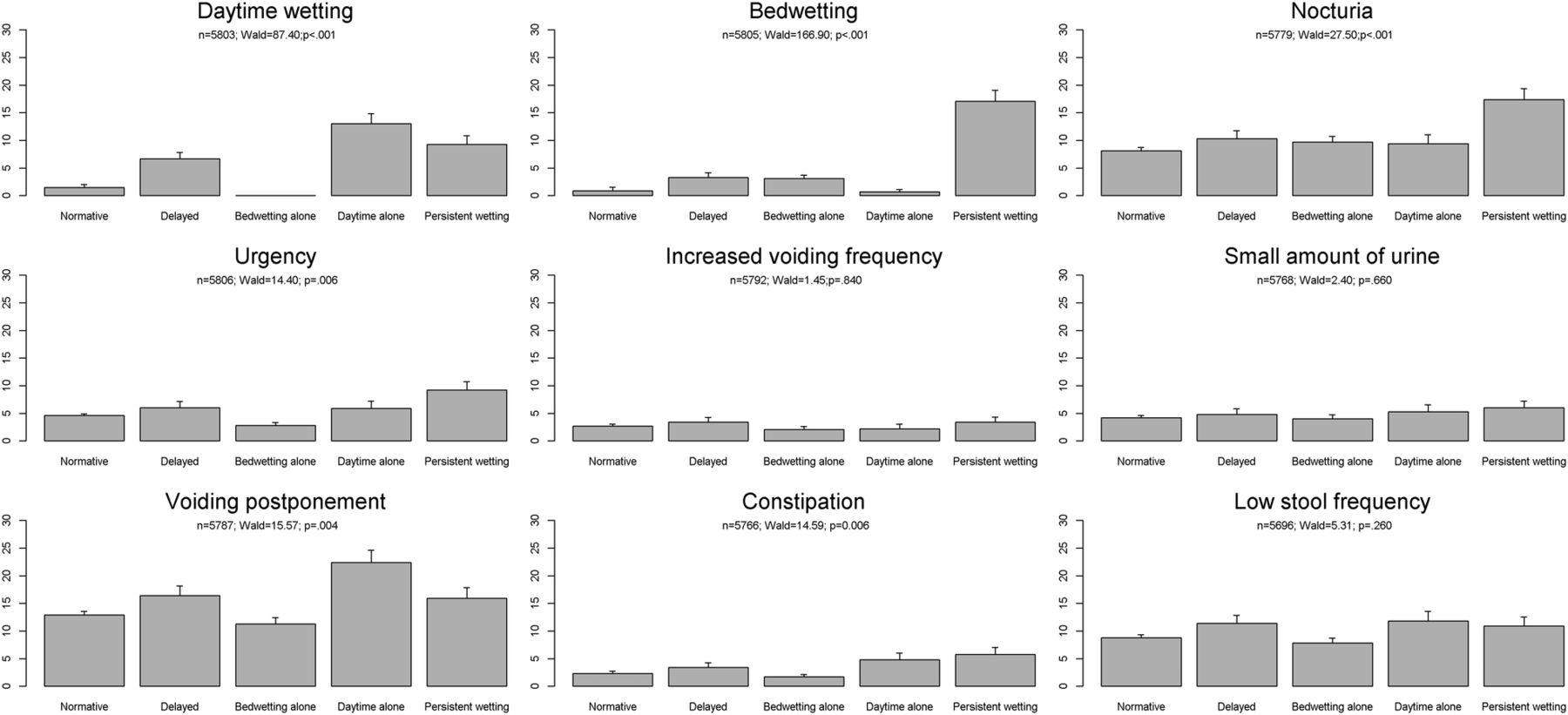Bedwetting, also known as Enuresis, is a common condition that affects children, adolescents, and even some adults. While it is often considered a normal part of growing up, persistent bedwetting can have emotional, psychological, and social implications for those who experience it. Understanding the causes, effects, and available management options is essential to help individuals and their families navigate this challenging issue.

Understanding Bedwetting
Bedwetting refers to the involuntary release of urine during sleep. It is most commonly observed in children but can persist into adolescence or adulthood in some cases. The condition is categorized into two types: primary and secondary. Primary bedwetting occurs when an individual has never achieved consistent nighttime dryness, while secondary bedwetting refers to a recurrence of the problem after a period of at least six months of dry nights.
Prevalence of Bedwetting
- Approximately 15% of children aged five experience bedwetting.
- The prevalence decreases with age, affecting about 5-10% of children aged seven and 1-2% of teenagers.
- Although less common, bedwetting can persist into adulthood, impacting around 0.5-1% of adults.
Causes of Bedwetting
The exact cause of bedwetting is not always clear, but several factors can contribute to its occurrence. These include physiological, genetic, and psychological elements.
Physiological Factors
Several biological factors may play a role in bedwetting:
- Bladder Capacity: Some individuals have smaller bladder capacities, making it difficult to hold urine throughout the night.
- Hormonal Imbalance: A hormone called antidiuretic hormone helps reduce urine production at night. Low levels of this hormone can lead to increased urine production during sleep.
- Sleep Patterns: Deep sleepers may not wake up when their bladder is full, leading to involuntary urination.
- Urinary Tract Infections: Infections can irritate the bladder and increase the urge to urinate.
Genetic Factors
Research suggests that genetics can significantly influence bedwetting. If one or both parents experienced bedwetting as children, their offspring are more likely to face the same issue. Studies indicate that there is a strong hereditary component to the condition.
Psychological Factors
Emotional and psychological stressors can also contribute to bedwetting. Common triggers include:
- Changes in routine, such as starting school or moving to a new home.
- Family conflicts or disruptions, such as divorce or the birth of a sibling.
- Anxiety or fear related to specific situations or environments.
Effects of Bedwetting
While bedwetting is not harmful from a medical standpoint, it can have significant emotional and social consequences for those affected.
Emotional Impact
Children and adolescents who experience bedwetting often feel embarrassed, ashamed, or guilty. These feelings can lead to low self-esteem and anxiety. They may also avoid social activities, such as sleepovers or overnight camps, out of fear of being discovered.
Social Consequences
Bedwetting can affect relationships with peers and family members. Siblings may tease the individual, and parents might unintentionally express frustration or disappointment. This dynamic can strain family bonds and create additional stress for everyone involved.
Impact on Sleep Quality
Frequent nighttime awakenings due to wetting can disrupt sleep patterns, leading to daytime fatigue and difficulty concentrating. Over time, this can affect academic performance and overall well-being.
Management Options for Bedwetting
Managing bedwetting involves a combination of lifestyle changes, behavioral interventions, and, in some cases, medical treatments. The approach depends on the individual’s age, the severity of the condition, and any underlying causes.
Lifestyle Modifications
Making simple changes to daily habits can help reduce the frequency of bedwetting episodes:
- Fluid Intake: Limiting fluid consumption in the evening, especially caffeinated or sugary drinks, can decrease urine production at night.
- Toilet Routine: Encouraging regular bathroom visits before bedtime and avoiding holding urine for long periods during the day can improve bladder control.
- Dietary Adjustments: Avoiding foods that irritate the bladder, such as spicy or acidic items, may be beneficial.
Behavioral Interventions
Behavioral strategies are often effective in managing bedwetting:
- Positive Reinforcement: Reward systems, such as sticker charts, can motivate children to stay dry at night.
- Alarm Systems: Bedwetting alarms detect moisture and sound an alert to wake the individual. Over time, this helps train the brain to respond to a full bladder during sleep.
- Bladder Training Exercises: Practicing techniques to increase bladder capacity and strengthen pelvic muscles can improve control.
Medical Treatments
In cases where lifestyle changes and behavioral interventions are insufficient, medical treatments may be recommended:
- Medications: Certain medications can reduce urine production or increase bladder capacity. However, these are typically used as short-term solutions due to potential side effects.
- Therapy: Counseling or therapy can address underlying emotional or psychological issues contributing to bedwetting.
- Specialized Care: For individuals with complex cases, consultation with a pediatrician, urologist, or other specialists may be necessary.
Support for Families
Parents and caregivers play a crucial role in supporting children who experience bedwetting. Providing reassurance and understanding can alleviate feelings of shame and embarrassment. Open communication about the condition helps normalize the experience and reduces stigma.
Tips for Parents
- Avoid punishing or shaming the child for bedwetting incidents.
- Encourage open discussions about the issue and involve the child in finding solutions.
- Seek professional guidance if the problem persists or causes significant distress.
When to Seek Professional Help
While occasional bedwetting is common, certain signs warrant a visit to a healthcare provider:
- Persistent bedwetting beyond the age of seven.
- Sudden onset of bedwetting after a prolonged period of dryness.
- Daytime accidents or difficulty controlling urination.
- Signs of urinary tract infections, such as pain or burning during urination.
Final Thoughts
Bedwetting is a multifaceted issue that requires patience, understanding, and a comprehensive approach to management. By addressing the underlying causes and implementing appropriate strategies, individuals and families can work toward overcoming this challenge and improving quality of life.





